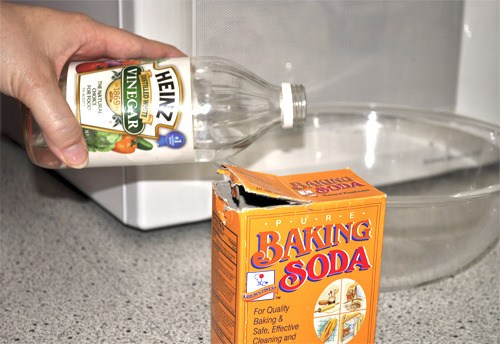Some parents of young children might fuss over outdoor dirt and grime that might affect their youngsters’ health.
But it’s the goods they have in their own homes that may affect little ones more.
Alison Henderson, a clinical psychologist at Planned Parenthood of the Great Northwest, has found several hidden household toxins in everything from cleansers to plastic and food. Henderson will give a talk later this year on the topic at Encompass.
“Having kids crawl on the floor around cleaning products is not good,” Henderson said. Many cleansers may contain vinyl, fragrances and dyes that emit toxins.
Toxins can also appear in plastic products and food, in the form of Bisphenol A, or BPA, a chemical that has been used for more than 40 years in the manufacture of many hard plastic food containers, such as baby bottles and reusable cups and the lining of metal food and beverage cans, according to the U.S. Department of Health and Human Services.
Trace amounts of BPA can be found in some foods packaged in these containers.
In 2008, the Food and Drug Administration conducted a review of toxicology research and information on BPA, and, at that time, judged food-related materials containing BPA on the market to be safe.
But recent studies have reported subtle effects of low doses of BPA in laboratory animals. While BPA is not proven to harm children or adults, these newer studies have led federal health officials to express some concern.
Henderson said alternatives are affordable and green-friendly. With food, for example, summer brings added choices.
“Farmer’s Markets have organic produce that has comparable prices because it’s coming locally,” she said. “You don’t have to pay for shipping costs and you support your local industries. We also talk about community P-Patches and the ability to plant your own veggies and fruits.”
As for cleaning products, Henderson’s alternatives include non-toxic bio-degrable products available at Target and Wal-Mart, along with homemade recipes to make your own cleaning products that are safer for families.
“We’ve tested it in our own house,” she said. “I’m not scared that my son will ingest them because we use vinegar and baking soda. It’s cheaper and decreases levels of toxins in your life.”
Henderson’s efforts are meant to help families stay healthy and raise healthy children.
“I’m not expecting parents to do a 180-degree shift,” Henderson said. “I think of it as a harm reduction model.”



